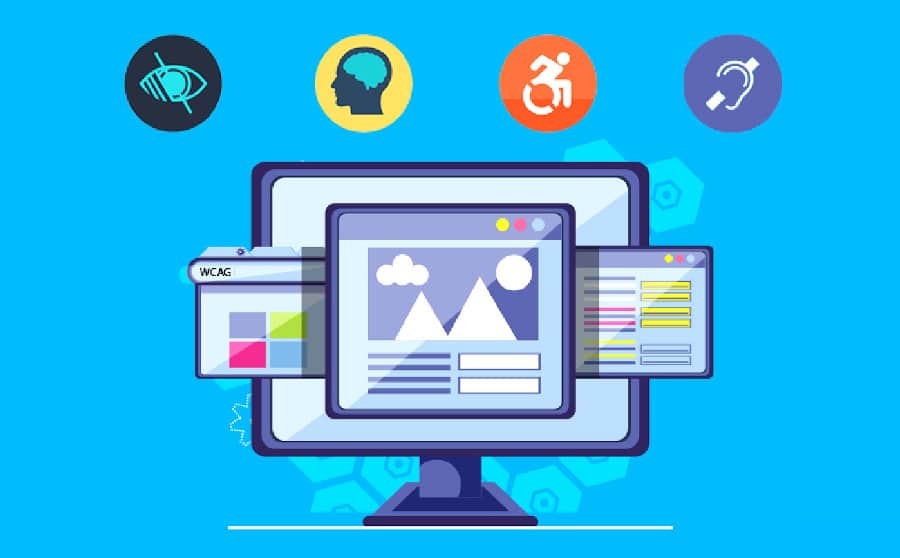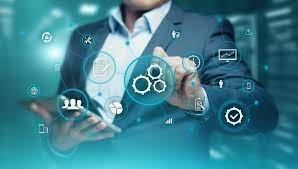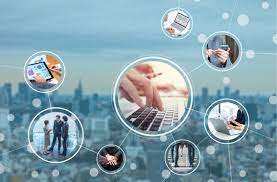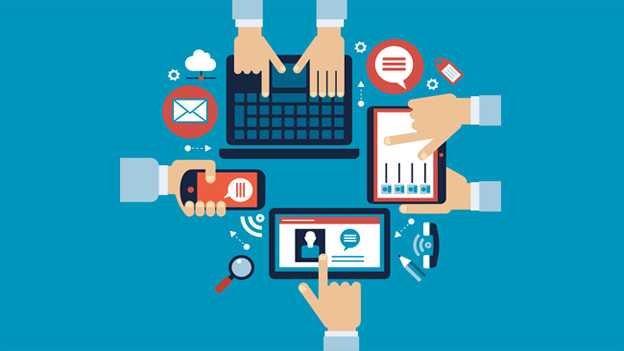Describing the Internet of Things (IoT) in modern life
The Internet of Things, commonly referred to as IoT, is a network of interconnected physical devices, vehicles, buildings, and other objects.
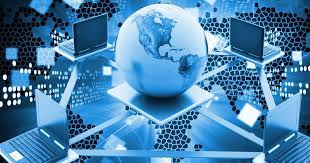
In today's fast-paced of internet of things world, where technology constantly evolves, the Internet of Things (IoT) stands at the forefront of a technological revolution.
With cutting-edge technology permeating our daily lives, IoT has emerged as a game-changer, revolutionizing the way we interact with the world around us.
In this blog post, we will explore the multifaceted role of IoT in modern life, its impact on various sectors, and how it is shaping our future.
The Internet of things: A Brief Overview
The Internet of Things, commonly referred to as IoT, is a network of interconnected physical devices, vehicles, buildings, and other objects that are embedded with sensors, software, and network connectivity. These "things" can collect and exchange data, creating a web of information that can be used to monitor, control, and optimize various processes.
- Enhancing Connectivity
One of the most significant contributions of IoT to modern life is its ability to enhance connectivity. With IoT devices becoming increasingly prevalent, we are more connected than ever before. Whether it's smart home devices, wearable technology, or industrial sensors, IoT enables seamless communication between devices and people. This connectivity has not only improved convenience but has also opened up new possibilities in various sectors.
- Revolutionizing Industries
IoT has had a profound impact on various industries, transforming the way they operate. In the world of manufacturing, for instance, the concept of Industry 4.0 leverages IoT to create smart factories. Machines equipped with sensors can communicate their status, predict maintenance needs, and optimize production processes in real time. This results in increased efficiency, reduced downtime, and cost savings.
The healthcare sector is another area where IoT is making significant strides. Wearable devices, such as fitness trackers and smartwatches, can monitor vital signs, track fitness goals, and even detect health issues. Additionally, IoT-enabled medical equipment can transmit patient data to healthcare providers, enabling remote monitoring and timely interventions.
Furthermore, in agriculture, IoT-powered precision farming techniques allow farmers to monitor soil conditions, weather patterns, and crop health. This data-driven approach enables farmers to make informed decisions, optimize resource usage, and increase crop yields.
- Smart Homes and Cities
IoT has brought about a revolution in our homes and cities. Smart home devices, ranging from thermostats and lighting systems to security cameras and voice-activated assistants, have become commonplace. These devices provide homeowners with greater control over their living spaces, increased energy efficiency, and enhanced security.
In urban areas, IoT is playing a pivotal role in the development of smart cities. Traffic management systems use IoT sensors to monitor and optimize traffic flow, reducing congestion and pollution. Smart waste management systems can optimize garbage collection routes, reducing costs and environmental impact. Additionally, IoT-enabled street lighting can adjust brightness based on ambient light levels, saving energy and money.
- Improving Healthcare
The healthcare industry has witnessed a significant transformation due to IoT. Remote patient monitoring, for instance, allows healthcare providers to keep tabs on patients' health conditions outside of traditional clinical settings. Patients with chronic illnesses can be monitored at home, reducing the need for frequent hospital visits.
IoT-powered medical devices, such as pacemakers and insulin pumps, can transmit real-time data to healthcare professionals, ensuring timely interventions in case of emergencies. This level of connectivity has the potential to save lives and improve the quality of healthcare.
- Enhancing Energy Efficiency
With growing concerns about climate change and energy conservation, IoT plays a crucial role in enhancing energy efficiency. Smart meters installed in homes and businesses can provide real-time data on energy consumption, allowing users to make informed decisions about their usage. Utilities can also optimize energy distribution and reduce wastage.
In industrial settings, IoT sensors can monitor equipment and processes to identify energy inefficiencies. This data can be used to implement energy-saving measures, ultimately reducing the environmental footprint of industrial operations.
- Transportation and Logistics
IoT is reshaping the transportation and logistics sector. Smart transportation systems use IoT sensors and data analytics to improve traffic management, reduce accidents, and enhance the overall commuting experience. In addition, IoT-enabled tracking devices are used in logistics to monitor the location and condition of goods during transit, ensuring timely deliveries and minimizing losses.
- Agriculture and Food Supply Chain
In agriculture, IoT is revolutionizing farming practices. Sensors can monitor soil moisture levels, weather conditions, and crop health, allowing farmers to make data-driven decisions regarding irrigation, fertilization, and pest control. This precision farming approach leads to higher crop yields and reduced environmental impact.
IoT also plays a crucial role in the food supply chain. Temperature and humidity sensors in refrigerated trucks and storage facilities help maintain the quality and safety of perishable goods. This is particularly important in ensuring the freshness of food products from farm to table.
- Security and Surveillance
IoT has also brought advancements in security and surveillance. Smart security systems equipped with cameras, motion sensors, and access control can be remotely monitored and controlled via smartphones. Additionally, facial recognition technology and IoT integration are enhancing the accuracy and effectiveness of security measures.
Challenges and Concerns
While IoT offers numerous benefits, it also comes with challenges and concerns. Privacy and data security are major issues, as the vast amount of data generated by IoT devices can be vulnerable to breaches. Safeguarding personal information and ensuring secure communication channels are ongoing challenges.
Interoperability is another concern. As IoT devices and platforms are developed by various manufacturers, ensuring seamless communication and compatibility can be complex. Standardization efforts are underway to address this issue.
The sheer volume of data generated by IoT devices can also be overwhelming. Efficient data management and analysis are essential to derive meaningful insights and avoid information overload.
Future Trends and Viva Technology
As we look to the future, IoT is poised to continue its rapid evolution. Here are some emerging trends and the role of Viva Technology in shaping the IoT landscape:
- 5G Connectivity: The rollout of 5G networks will significantly enhance IoT capabilities by providing faster and more reliable connectivity. This will enable real-time communication and support applications that require high bandwidth, such as augmented reality and autonomous vehicles.
- Edge Computing: Edge technology, a key component of IoT, involves processing data closer to the source, reducing latency and improving response times. This trend will become more prominent as IoT applications require faster decision-making and reduced reliance on centralized cloud servers.
- Artificial Intelligence (AI) Integration: AI and machine learning will be increasingly integrated into IoT systems to analyze data, make predictions, and automate processes. This will lead to more intelligent and autonomous IoT devices.
- Sustainability: IoT will play a pivotal role in sustainability efforts, with applications in environmental monitoring, energy conservation, and waste reduction. It will be a crucial tool in addressing climate change and promoting a greener future.
- Viva Technology: Viva Technology, a global event dedicated to innovation and technology, will continue to be a platform for showcasing IoT innovations. It brings together startups, established companies, and thought leaders to explore the latest trends and technologies in the field.
The Internet of Things has become an integral part of modern life, reshaping industries, enhancing connectivity, and improving efficiency across various sectors.
As IoT continues to evolve, it will bring about new possibilities and challenges. With cutting-edge technology and innovations like Viva Technology leading the way, the future of IoT promises to be even more interconnected, intelligent, and transformative.
Embracing IoT and its potential can lead us to a more connected and efficient world, where technology serves to improve the quality of life for all.
What's Your Reaction?








